Recently we’ve started buying our groceries online. In a busy life it’s far more convenient to place an order on a smartphone instead of wandering around a crowded supermarket, scrabbling with other shoppers for bargains. My wife and I used to plot optimal pathways to get the weekly shop over with as quickly as possible, one of us pushing the trolley through the wider aisles and the other off battling the denser crowds. Nowadays it’s far simpler to press a few buttons on a screen and open the front door to a veritable bounty of produce; it’s much quicker too. It gives us more time to play Istanbul.
Istanbul is the 2014 winner of the Spiel des Jahres award, a game about merchants and their apprentices navigating a bustling bazaar, jostling with other shoppers and looking for the best offe-
Hmmm…
In honour of Meeple Mountain’s Top 6 lists, here is my review of Istanbul featuring the 6 top reasons why Istanbul is similar to, but way better than, grocery shopping.
1. It’s a race!
I used to treat shopping as a race, but that was just so that I could get it over with, a sprint to freedom if you will. In Istanbul players are merchants racing to collect rubies from various dealers around a bazaar made up of 16 different locations. You can collect rubies from some of these locations and the first player who reaches 5 rubies (6 in a two player game) wins. Each location provides a different reward: Mosques give bonus abilities, the Post Office provides an ever changing bounty of goods, the Tea House lets you gamble for money, and so on. If I’m honest the different location explanations are a minor hurdle in learning the game but they are fairly self-explanatory and quickly become second nature.
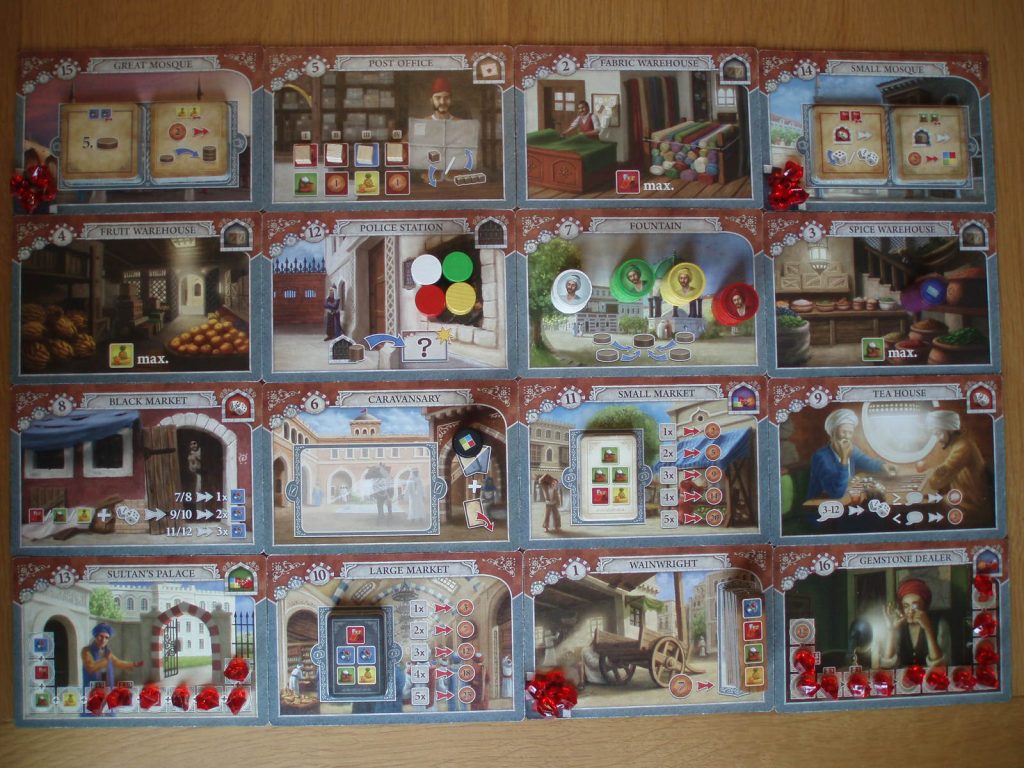
I’ve said before that race games have a tangible vitality that can elevate them beyond counting victory points, and Istanbul is no different. The players pinball around the board, collecting and trading goods for rubies, grasping for any advantage to edge them in front of their opponents. Yet the journey from start to finish is worthy in and of itself. It’s fun to think about where to go next, what you’ll get in return and what that means in terms of rubies. It may be a race but the course is as good as the finish line.
2. Wheelbarrows!
These days when pushing a trolley I don’t try to ride on it, running and sliding in the aisles or pretending to drift when I go round corners. Yet that innocent joy still returns momentarily before the dull reality of grocery shopping sets in. There’s something rather enjoyable about a container of stuff that moves.
Players in Istanbul each get a cardboard wheelbarrow to store their rubies and the four types of goods in the game (fruit, fabric, spices and jewelery). Visiting the Fruit Warehouse, for example, gives you as much fruit as your wheelbarrow can carry (demonstrating the generous nature of most of the locations in Istanbul, which frequently hand out free stuff). These goods can be spent in exchange for bonuses, money and rubies.
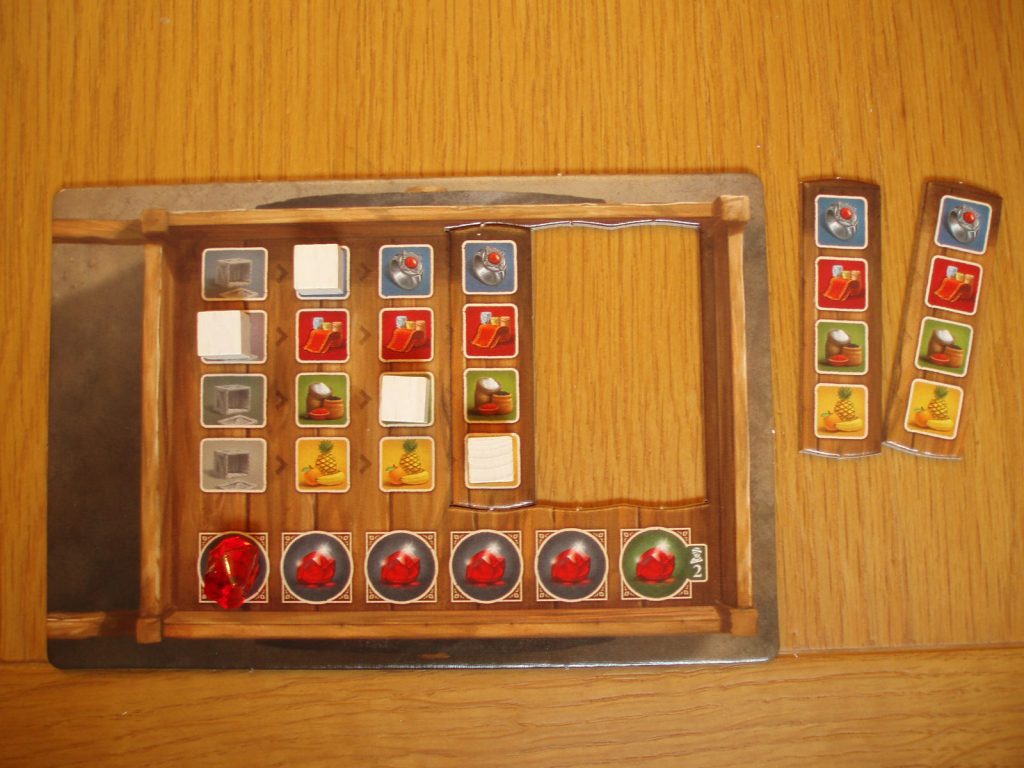
But your wheelbarrow is leaky – a gaping hole in the middle of it means you can only carry so much of each type of good. Happily, you can purchase extensions at the Wainwright to fill the void a piece at a time, allowing you to carry more. Plug the hole completely and you get a ruby. Even before you start playing you’ve got something to work towards: filling that ugly chasm on your personal trolley. They don’t actually move, they’re effectively just sliding counters in front of you, but the wheelbarrows add to the fun of Istanbul by providing an extra dimension in your quest for rubies and an intuitive way of improving your own ability.
3. Minions!
Grocery shopping eats into valuable time with my wife as we trudge around a neon warehouse, frequently apart on our own separate missions. In Istanbul each player is a merchant with a team of apprentices – a stack of coin-shaped wooden pieces. On your turn you pick up your stack, leaving an apprentice behind, and move one or two spaces to a new location. To access the rewards of your new location you must have an apprentice present – either bringing one with you to leave behind on your next turn or picking one up that you’d left behind on a previous turn. A few rounds into the game and your apprentices trail behind you like breadcrumbs.
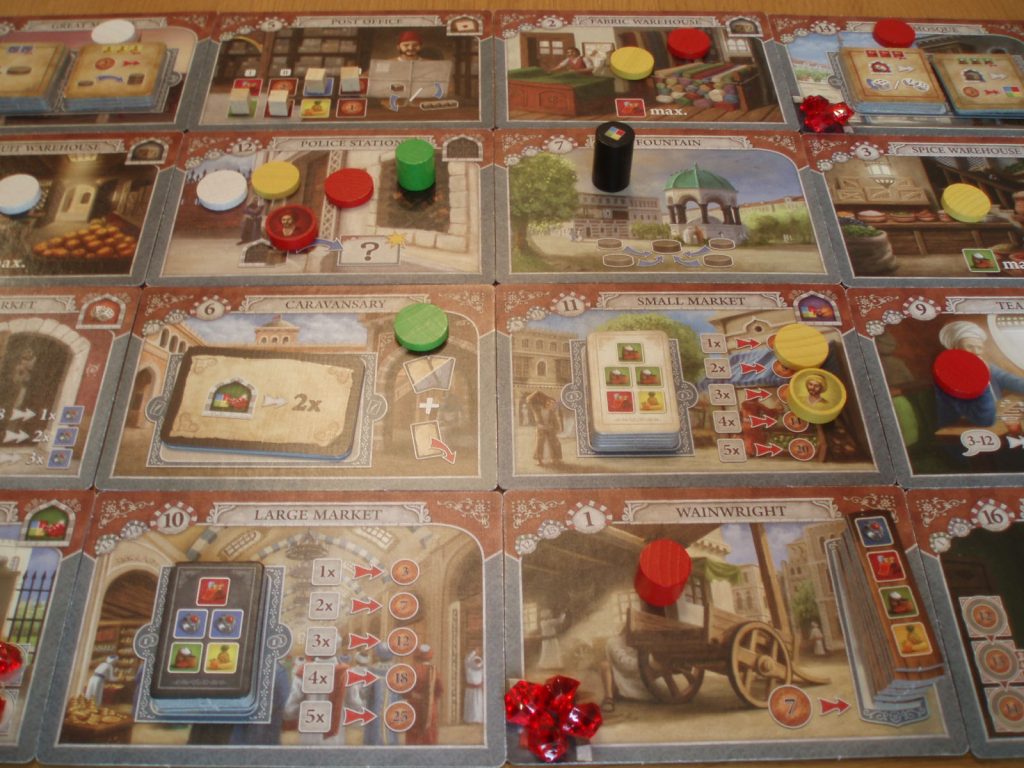
A merchant alone gets nothing, so Istanbul revolves around balancing where you want to go with how you manage your apprentices. Why does the merchant need an apprentice present before any deals can happen? I’ve no idea. Perhaps someone needs to guard the wheelbarrow whilst the haggling takes place? Sixteen locations might seem overwhelming but on a given turn your options are more limited. You can only travel up to 2 spaces and may be further constrained by your supply of apprentices. You can always return to the central Fountain to gather your apprentices back to you but that’s a waste of a turn in this quick moving game. The merchant-apprentice mechanic is wonderful: it simultaneously provides a knotty puzzle and a way of stopping that same puzzle from becoming too ponderous.
4. Other people!
People are great. Except when they leave trolleys in the way, linger over loaves of bread and form massive checkout queues. So let me add a caveat – people are great, except when grocery shopping. Yet despite the crowds, in Istanbul you can go anywhere you like. If there’s another player’s merchant at your desired location then you have to pay them a small amount for the privilege of joining them. But you’re never blocked, there’s nothing that holds you back and the only frustrations arise from your own mistakes. Nobody is standing in your way fondling a seeded loaf; your opponents’ positions on the board just add another element to the decision making process.
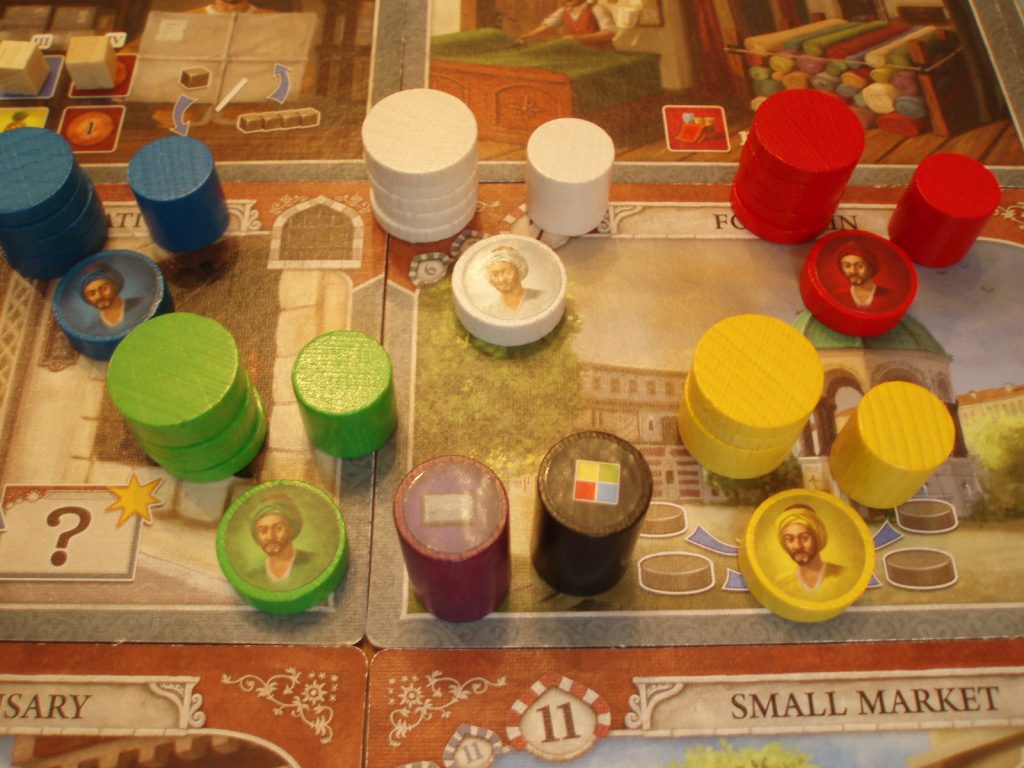
A lot of games of trading goods can feel quite solitary, yet Istanbul thrives precisely because of everyone else. As the merchants and apprentices of each player spread out across the bazaar the game comes to life, that movement mechanic adding to the theme. What’s more, there are other individuals wandering around the bazaar: the governor and smuggler will sell you bonuses if you arrive at the same location as them.
Each merchant also has a family member you can break out of prison if you land on the Police Station, sending them to collect the rewards at any location. And if you land on a space containing another player’s felonious family member? Send them back to jail to collect the bounty. With the merchants, apprentices, convict kin, governor and smuggler on the board you’re playing with and against your friends, scurrying amongst the bustle of the market.
5. Appearances!
Supermarkets ensure their food looks enticing, and punnets of juicy strawberries or emerald grapes sure look mouth-watering. Ultimately, though, supermarkets are unattractive places. Istanbul on the other hand…
When it’s all laid out on the table Istanbul is a beautiful game (although it does take a little bit longer to set up and put away than I’d like). There’s so much detail, so much care and attention. The artwork is bright and vibrant, the iconography is crisp and clear (once you’ve learnt a few key details) and the game beckons to you from the table.
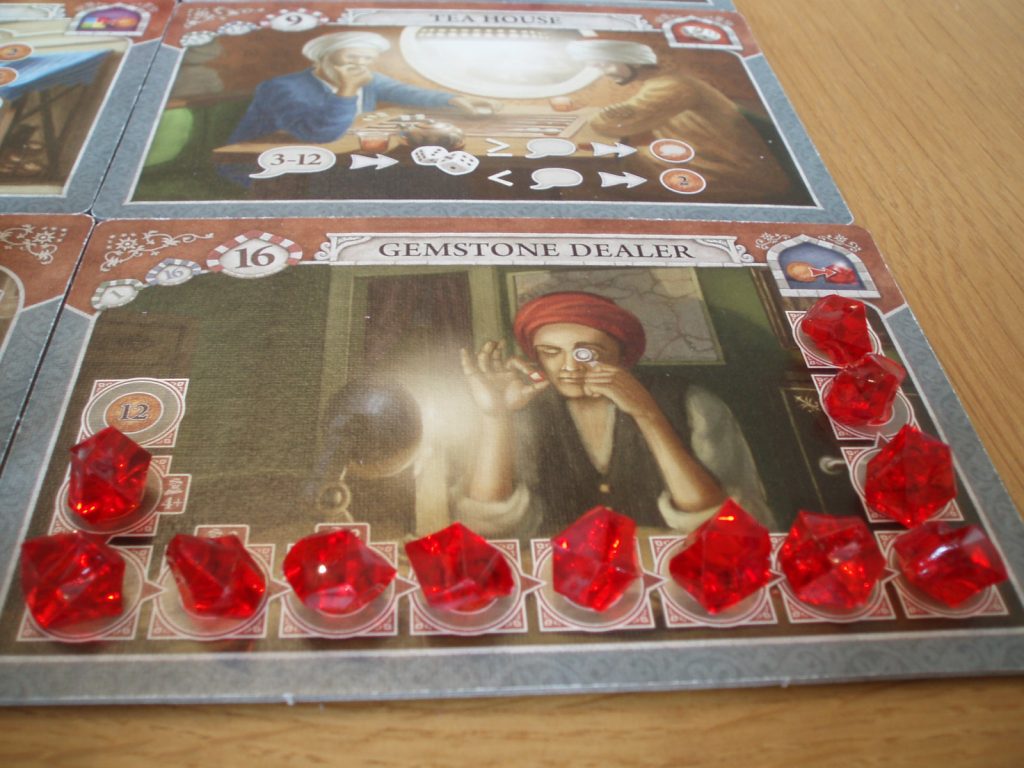
The art and the pieces combine to create the impression of crowds jostling for bargains, and yet it never feels cluttered. Once you’ve played a couple of turns, what at first appears crammed with detail seems to open up. Again, the movement mechanic is a lovely piece of design that allows you keep your focus on your current area of the board without losing the hubbub of the market.
It’s almost enough to let you forget the complete absence of women in the game. It’s astonishing that a game published in 2014 doesn’t feature a single female character. One proactive fan has created stickers giving you the option at least of male and female merchants – you can download the template for them here. Despite this glaring omission, it’s a gorgeous game to look at and those rubies are particularly beguiling. They glisten like cranberries, begging you to snaffle them up and win the game.
6. It’s a game!
If you are committed there are ways to gamify pretty much anything, including grocery shopping. You can search for branded bread, try to avoid products beginning with certain letters, only purchase items with even-numbered prices or a myriad of other little competitions. In the end though, supermarkets remain a chore whilst Istanbul is a game, and a great one at that.
The merchant-apprentice mechanic is a gift that keeps on giving, allowing Istanbul to walk the line between complex and simple by providing an array of options but significantly reducing them on a given turn. It’s not a balance that will work for everyone. For Meeple Mountain’s David McMillan that reduction is too much and the decisions on an individual turn aren’t interesting enough (you can read his thoughts on Istanbul here and see the sort of game he prefers here). He’s not wrong, you won’t spend minutes considering every move but that’s precisely why I like it. I can plan moves and routes out in advance, juggling enough mentally to keep me on my toes but not too much that I forget the people around me. Istanbul makes me feel clever without making me work too hard for it, a comfortable step up from a gateway game.
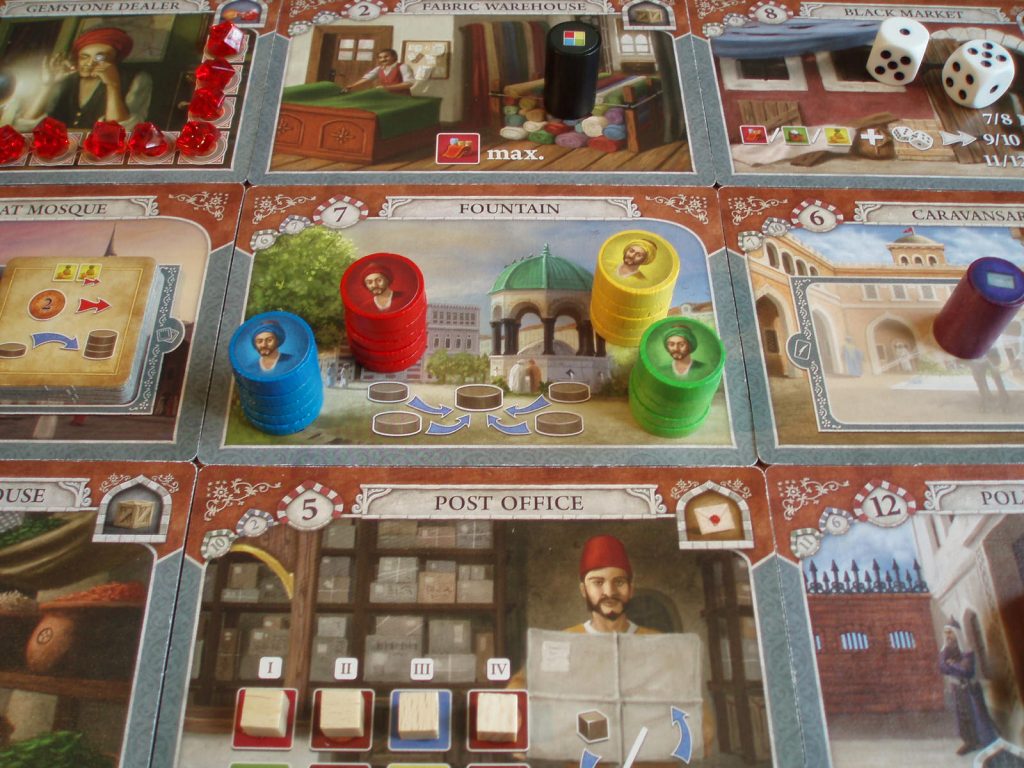
Perhaps if it was a longer game I’d be looking for more from it but Istanbul doesn’t overstay its welcome. There’s a lovely pace and flow across the game, building towards what is frequently a photo finish. And it’s remarkably intuitive, embodying its theme beautifully. For those who look for variability in their games, the market locations can be arranged in any order you like. Some locations work better when placed in close proximity to each other so allowing you to vary their positions across the market provides the option for easier or more challenging games. It’s another welcome addition to an already generous game.
In Summary
Istanbul is a market leader of medium-weight board games, ranking up there with that other classic game of trading goods: Jaipur. What Istanbul lacks in camels it makes up for with an higher player count that works exceptionally well whether it’s 2, 3, 4 or 5 players that are racing around the bazaar for rubies.
In conclusion, Istanbul is a lot more fun than grocery shopping! But having moved our weekly shop online, does the recently released Istanbul app foreshadow a similar shift to the digital sphere…? Find out by reading Meeple Mountain’s Istanbul: Digital Edition App Review.


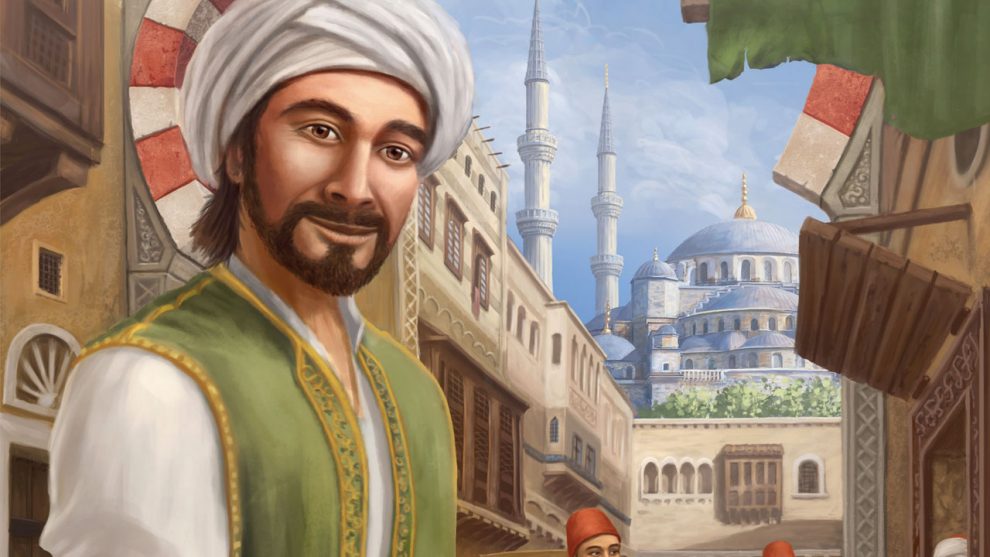

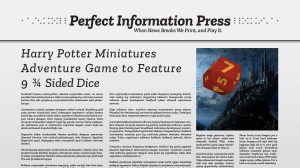
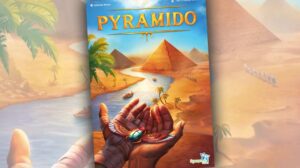






Add Comment